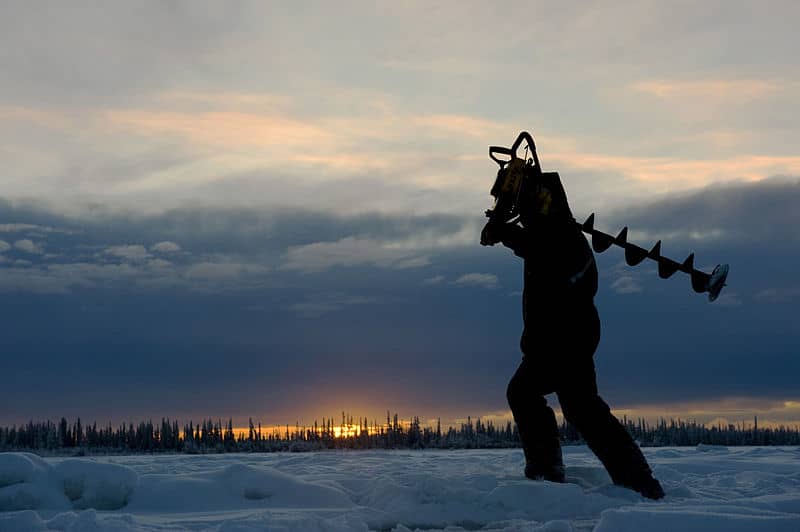Russian Conservationists Drill 25,000 Ice Holes to Save Suffocating Fish
OutdoorHub Reporters 02.26.14

Conservationists in Russia’s Astrakhan region have drilled more than 25,000 holes in the ice to prevent a major fish kill in the area’s waters. Officials told RIA Novosti that thick ice in the region is suffocating fish and could lead to a major die-off. The holes were drilled at the ratio of roughly four per acre.
“Specialists drill 10-12 holes per hectare using ice augers. Then they put reeds into the holes, which allow the fish to breathe and prevent the holes from freezing over,” read a statement from the Volga-Caspian department of the Federal Fisheries Agency.
Winterkill, or fish kill caused by ice and cold, is the most common form of fish die-off. Thick ice and snow often results in a lack of dissolved oxygen in the water. This is because the ice blocks sunlight from oxygen-producing plants and the remaining oxygen is used up by the bacteria on the bottom of lakes. Russia is not the only place hard hit by an unusually cold winter, heavily frozen rivers and streams across North America are also in danger of heavy fish die-offs.
“Winterkill begins with distressed fish gasping for air at holes in the ice and often ends with large numbers of dead fish that bloat as the water warms in early spring,” Gary Whelan, fish production manager for the Michigan Department of Natural Resources, told The Detroit Free Press. “Dead fish and other aquatic life may appear fuzzy because of secondary infection by fungus, but the fungus was not the cause of death.”
Ice coverage in the Great Lakes was at a record high this year, with almost all of Lake Superior and Lake Erie frozen at one point. However, it is the fish in shallower bodies of water that are most vulnerable to winterkill.
“Given the harsh conditions this winter with thick ice and deep snow cover, it will be particularly common in shallow lakes and streams and ponds,” Whelan said.
Fish will not be the only animals to surface as the ice melts, Michigan officials warn that frogs, turtles, and other aquatic animals may be found early in spring.

